Discover Overnight Success
Overnight Success

Overnight Success
Author: Escape Collective
Subscribed: 158Played: 4,723Subscribe
Share
© Escape Collective 2022
Description
A podcast about the founders, the innovators, and the remarkable people in the cycling industry and the stories about the icons they've created.
Escape Collective is member-funded. If you like this podcast please consider supporting us by becoming a member: https://escapecollective.com/member/
Escape Collective is member-funded. If you like this podcast please consider supporting us by becoming a member: https://escapecollective.com/member/
41 Episodes
Reverse
In our final episode of this limited series, we turn the floor over to member questions. Thank you to everyone who became members throughout this series. Every single one of you helps make us produce more content like this. If you're not a member, you can join here: https://escapecollective.com/join/You can listen another podcast you'll enjoy about 'Why are modern bikes so expensive' podcast here: https://escapecollective.com/why-are-modern-bikes-so-expensive/
In EP3, we heard about what much of the bike industry experienced during that dramatic slowdown of bike sales, and what resulted. In this episode, EP4, we'll hear about some of the learnings and takeaways from the past three years, and put forward some tough questions for the bike industry to ask itself.
This is the third episode in our series that takes a deep dive into what the bike industry experienced during the covid boom and how it got into the trouble it’s in now.In Episode 2, we heard from various industry professionals about the early warning signals that told them that this bubble was about to burst, and some of the reckless behaviour and pressure that was being put onto various parts of the supply chain by some big brands. But it’s not so clear-cut. We’re also beginning to hear some finger-pointing in all directions and I supposed the fragmented nature of the bike industry makes it really easy for things to slip through the cracks and in hindsight, it was perhaps a recipe for disaster.In reference to the postmortem of Wiggle/CRC and the interview with Jake Dudek done in this episode, you can read his post on LinkedIn here: https://www.linkedin.com/pulse/postmortem-signa-sports-united-jacob-dudek-xau9f/In this episode entitled ‘The Famine’, we zoom into the timeframe when demand came to an abrupt halt and what the bike industry was left with.
In episode one we heard about the unexpected windfall that the cycling industry saw at the start of the pandemic and how many needed to react. Of course that didn’t last forever, and in this episode I’ve titled ‘the storm clouds’ we talk about the early signs that this new demand was coming to an abrupt halt, and the types of behaviour that was happening and the causes of that behaviour that led to the catastrophe that the industry would later see.
In this 4 part series, I wanted to explore the events that took place that led the bike industry to the troubling point it’s at now. I spoke to over a dozen industry professionals from all parts of the supply chain. From well run bike shops, forecasting analysts, distributors, the biggest bike brands in the world, and manufacturers. It’s well known that the bicycle industry went through an unprecedented boom during the pandemic from 2020 - 2022. Jump ahead to 2024 and much of the bike industry is in trouble. New demand has come to an abrupt halt. New entrants into the bicycle market have not stayed as the industry had hoped.We’re seeing massive inventory overruns at bike shops. Big bike brands are taking on extra warehousing space. Businesses such as Niner, Orange, Wiggle/CRC, have gone into bankruptcy. Otherwise profitable big brands have taken on debt to keep afloat. There are brands out there who are doing well, but they’re the exception rather than the norm. In general , I don’t think many would disagree that the situation in major cycling markets, aside from China, is pretty dire.The episode is this first of four. We’re going to bring you on a journey through the COVID feast, the storm clouds, the famine, and the lessons learned in hindsight.In this episode, The Feast, we speak to a bike shop owner, a demand forecasting analyst for a distributor, company CEOs, and a manufacturer to hear about what they experienced during the initial stages of the pandemic in early 2020.
In this episode replay, I speak to Phil Liggett about how he got his start in commentating, how he met Paul Sherwen, how he’s been doing since Paul’s untimely passing, about his relationship with Lance Armstrong, and the cut-throat nature of his position at the top of his profession.Liggett is undeniably the most recognisable voice in cycling and his dulcet tones have brought the sport we all love into the mainstream through his ‘Liggetisms’, through his descriptions of châteaux, and through his partnership with co-commentator Paul Sherwen.Many enthusiasts say that Phil is long past his prime and should retire. There’s no denying that the media landscape is a very different place now than it was when Phil started commenting — before many of us were even born. But Phil has witnessed and called so many of cycling’s most significant and historic moments; moments that made us all jump out of our chairs with excitement. You have to thank Phil for being part of those memories. Personally, I bookmark my years by who won the TdF in that particular July, and Phil and Paul’s voices are part of that.Phil is now 76 years old and has been commentating since the late 70s. Think about that. His impact on the sport and his pioneering role have been tremendous. These days, while he might get some details wrong while calling a race in front of millions of people, I call tell you first-hand through many interactions with him that he’s still sharp as a tack. And as much as you don’t want to hear it, his commentary isn’t really for you or me, the hardcore cycling fans – it’s for the people who immerse themselves in the Tour de France once a year, and who still love him.From aspiring pro bike racer, to journalist, to commentating with Paul Sherwen for 33 years, Phil is now in the twilight of his career. I sat down with him to hear how he got started, and to learn about some of his struggles along the way.
Mikel Delagrange is the reluctant face of Team AMANI. While he prefers the title of 'Head Cheerleader,' he was left to carry the torch after the project's founder, Sule Kangangi, tragically died in a high-speed crash in Vermont. Now leading the mission to dismantle the barriers facing African cyclists, Mikel oversees a unique ecosystem: From building a high-altitude training center in Kenya to the Migration Gravel Race. With a moonshot goal of fielding an all-African team at the Tour de France, Team AMANI is fighting to ensure the next generation can bridge the gap to the sport's highest levels.
Last month, I traveled to the Great Karoo in South Africa for the inaugural Nedbank Gravel Burn. It is the latest brainchild of Kevin Vermaak, the man who built the legendary Cape Epic.I cannot overstate how spectacular the experience was for me. While the riding was incredibly challenging, the event's culture was the true standout. It was a rare leveling of the playing field: World Tour pros like Tom Pidcock. Ashleigh Moolman-Pasio, and Alison Jackson, Ivan Glasenberg’s cohort of Glencore billionaires, all telling the same war stories from the road around the campfire and and dinner tables as us weekend warriors. Pretentiousness was left at the gate. For a week in the Great Karoo, we shared the same tents, the same food, and the same challenges.Typically, on this show, I wait for a business to mature for at least ten years before we profile it, afterall, an overnight success takes about a decade to buid. but given Kevin’s track record and the instant impact of this event, I’m breaking my own rule. I have no doubt Gravel Burn will quickly become a fixture on every cyclist’s bucket list.In this episode, we aren’t just talking about the ride; we’re dissecting the business model of an event like this, the critical choices made, and where it goes from here.Here is my conversation with Kevin Vermaak.If you like this show and want to support it so we can continue, please head to www.escapecollective.com/join and become a member.
In this episode we speak to Graham Watson, perhaps the world's most prolific cycling photographer. Over five decades, Graham didn't just witness cycling history - he documented it. Some might say the pioneers had it easy, but as you'll hear, Graham's path was anything but. He made his own luck, opening doors through persistence and talent. And whoever said "nice guys finish last" never met Graham.Today's episode runs longer than usual because there's no way to do justice to Graham's remarkable 40-year career in an hour. Buckle up for a ride with the man who captured cycling's most historic moments.
In 1999, Joe Friel was drowning in faxes. The legendary cycling coach, later author of The Cyclist’s Training Bible, had 72 clients sending training data every Monday. His desk was buried under paper. His son Dirk, then racing in Belgium, figured there had to be a better way.Over beers at The George in Vail, Dirk convinced his best man—and the only web developer he knew—Gear Fisher, to build a solution. Dirk paid him $3,000. That handshake deal became TrainingPeaks, now the go-to platform for endurance athletes, from amateurs to Tour de France winners.If you’ve worked with a coach or followed a structured plan, you’ve likely used TrainingPeaks. What stood out to me while researching this story is that TrainingPeaks wasn’t built primarily for athletes. Their real customers are coaches. That focus, counterintuitive at the time, turned a simple web tool into a 300-person company that now stretches beyond endurance sports into areas like virtual cycling and even music education software.This story is personal for me. Friel’s Cyclist’s Training Bible changed my life three decades ago. Back then, I’d wait by my inbox for his UltraFit newsletter, one of the few reliable training resources for everyday cyclists.In this episode, you’ll hear the founding story of TrainingPeaks directly from Joe and Dirk Friel, along with co-founder Gear Fisher, who ran the company for 20 years. It’s about solving your own problem, knowing your real customer, and how three guys with no business plan built a cornerstone of modern endurance sports.If you enjoyed this and want to hear more, please become a member of Escape Collective by joining here: https://escapecollective.com/join
Charlie Stewart, Rupert Hartley, and Jack Howker started the British apparel brand Albion nearly a decade ago. It began not in a boardroom, but in the wild weather of Wales. I first met founders Charlie and Rupert by chance on the roads of Mallorca, before they’d launched a single product. Years later, Albion has grown into a respected name in the ultra-distance and adventure cycling scene. This episode traces their journey from pre-dawn London rides to post-work email threads, through the hurdles of product development and the pivotal hires, like legendary designer Graeme Raeburn, that helped transform them from three friends with an idea into a serious brand.It’s a story about staying small when everything tells you to scale fast. About designing for three seasons in a day. And about why authenticity, patience, and humility still matter in building a business—especially one worth believing in.
Over the weekend The Service Course announced its closure. This is a re-play of the episode we previously did that talks about its origin story. We will aim to do a follow-up when the time is right.---If you follow professional cycling and are attracted to specialty coffee, beautiful custom bikes, and boutique travel, then you’ve surely come across Christian and Amber Meier’s businesses. The couple from Canada, of all places, embarked on a professional cycling career for Christian and settled in the once sleepy Catalan town of Girona. The two of them are the founders of La Fabrica, Espresso Mafia, and The Service Course which have now become Girona institutions that people actively seek out.Now, The Service Course boasts four European locations and includes some of cycling’s biggest stars as both investors and employees. Michael Woods, Kasia Niewiadoma and Edvald Boasson Hagen are all investors, and Simon Gerrans is CEO. It’s a remarkable story that isn’t even close to being finished yet, so grab a coffee, strap in, and hear where Christian and Amber’s story started so you can follow where it’s going.
In this episode of Overnight Success we hear the story of cycling commentator Matthew Keenan.
The Pro's Closet represents a quintessential modern startup journey, evolving from a professional mountain biker's eBay side hustle into America's largest certified pre-owned bicycle marketplace. The company's trajectory mirrors both the opportunities and challenges of the pandemic era, riding high on $90 million in funding before facing the harsh realities of market volatility.The Pro's Closet experienced a meteoric rise during the pandemic cycling boom. However, the company soon encountered the perfect storm of challenges that defined the era: cheap capital driving unsustainable growth, miscalculating the cycling boom's longevity, and the whiplash effect that rattled the entire bike industry.
Rapha recently celebrated its 20-year anniversary and for the majority of that time it was the darling brand of cycling. Everything Rapha touched turned to gold. Founder Simon Mottram saw cycling apparel differently than anyone else and created an entirely new market for people who connected with his vision.In 2017, RZC, the Walton brothers’ investment arm, bought a majority stake in Rapha. Things began to change, and not in a way their customers and community hoped. In 2021, Mottram stepped down as CEO and the business has gone through two (or three, depending on how you count) CEOs since. Not only have they had to deal with the lasting effects of COVID, but many customers will say that the brand is not what it used to be.Last year, in August 2024, Fran Millar stepped into the role of CEO. She has a wide array of experience that has prepared her for this unique challenge, most recently turning around the struggling British heritage brand, Belstaff. Earlier, she was instrumental in starting and running Team Sky, organising Eliud Kipchoge’s sub-two-hour marathon project, and many other career achievements.In this wide-ranging interview with Millar, we talk about what she intends on fixing at Rapha, how she’s going to go about that, and what her long-term vision is for the business.
Welcome to this special episode where we dive deep into one of cycling's oldest, most fascinating, and perhaps largely unknown stories - how a single French family, best known as their business entity the Amaury Sporting Organisation or ASO, came to control the Tour de France, the world's most famous bicycle race. Because, if you recall, they didn’t invent the TdF. A little french newspaper called L’Auto did. Today we're exploring this remarkable story detailed in Alex Duff's book "Le Fric" (which is slang in french for The Money) and we’ll be speaking with Alex himself about this incredible saga of family, power, and money. Alex is a UK born sports journalist and author of 3 books who has spent much of his career covering the intersection of business, money, and sports. To understand the ASO and the grip they have on the crown jewel of professional cycling, you need to understand the history of the Tour de France and how the Amaury family acquired it. History, national pride, politics and legacy mean so much more than money to this family, and is why the Tour de France will likely never have a price tag put on it.
The Cape Epic is widely regarded as the crown jewel in mountain bike stage racing. Many notable legends of the sport have called it the Tour de France of mountain biking. So how did Kevin Vermaak, a 30-year-old man new to mountain biking create a cultural phenomenon in the MTB world in the far away land of South Africa? This is his remarkable story...If you like this podcast and want to hear more, please support our work by becoming a member: https://escapecollective.com/member/
For many years, bike brands have been known to collaborate with automobile and Formula 1 companies in order to align themselves with their halo of high level performance, innovation and technology. But factor bikes started in reverse to that. Factor might seem like a relative newcomer in the market, and that's partially true. It's been a mere eight years since their bikes became widely available, but they got their start almost 16 years ago when a gentleman named John Bailey came along, who owned a Formula One data measurement and composites company. His company was called British Formula One, or BF-1 for short. John wasn't even a cyclist, but he wanted a project for his team of engineers to work on that showcased BF-1's capabilities and technology to his automotive market. He did this by launching a bike into the future and breaking every rule in the book.If you enjoyed this and want to hear more, please become a member of Escape Collective by joining here: https://escapecollective.com/member
It’s been said that Kona is 'The Smallest Biggest Bike Company in the World'. They’re best known as the quintessential North Shore bike brand, yet their global head office is just down over the border in Ferndale, Washington.The quirky company stood out with outrageous bike model names such as the Stinky Dee-Lux, Sex One, Sex Too, and, Jackshit, which placed them well and truly as the "alternative" bicycle company.The business was founded by Dan Gerhard, Jacob Heilbron in Vancouver, BC along with mtb hall of famer Joe Murray as their designer.With a rich history of iconic bikes and factory race teams, it was all overshadowed by the recent events of their former owners, Kent Outdoors, who were responsible for running Kona into the ground (my words, not theirs) before the original founders bought the company back last month. Only a few weeks after Dan and Jake bought the company back, I spoke to Jake about Kona’s founding story that dates back to 36yrs ago in 1988, the sale of the business to a private equity-backed company, and what happened that led them to buying Kona back. If you like this podcast and want to hear more, please support our work by becoming a member: https://escapecollective.com/member/
There’s an undeniable truth that an overnight success takes about 10 years, not a single night. Almost no one comes up with a winning business idea all at once. And if you’re not Peter and Tom Marchment or those around them who created the aftermarket wheel brand Hunt, you might be mistaken that they came out of nowhere. Tom and Peter are brothers who grew up riding in a small fishing village on the Isle of Man and like most of us at the beginning, cycling was a way to get around and a source of freedom. That progressed to mountain biking and then cross-country racing then road racing and time trialling - as you do in the UK. At University Peter got some background in materials sciences while Tom took a degree in ergonomics, which is human psychology and physiology applied to design, which he admits that he really didn’t like. Their paths diverged after university when Tom started working in a bike shop where he got some cycling industry experience, while Peter went to work at a bank. Peter and Tom have been slowly putting the building blocks of their steadfast aftermarket wheelset business together for nearly a decade now, all starting with an online store called The InnerTube Shop back in 2013. Here’s Peter and Tom Marchment who started InnerTube Shop telling about how it all began.







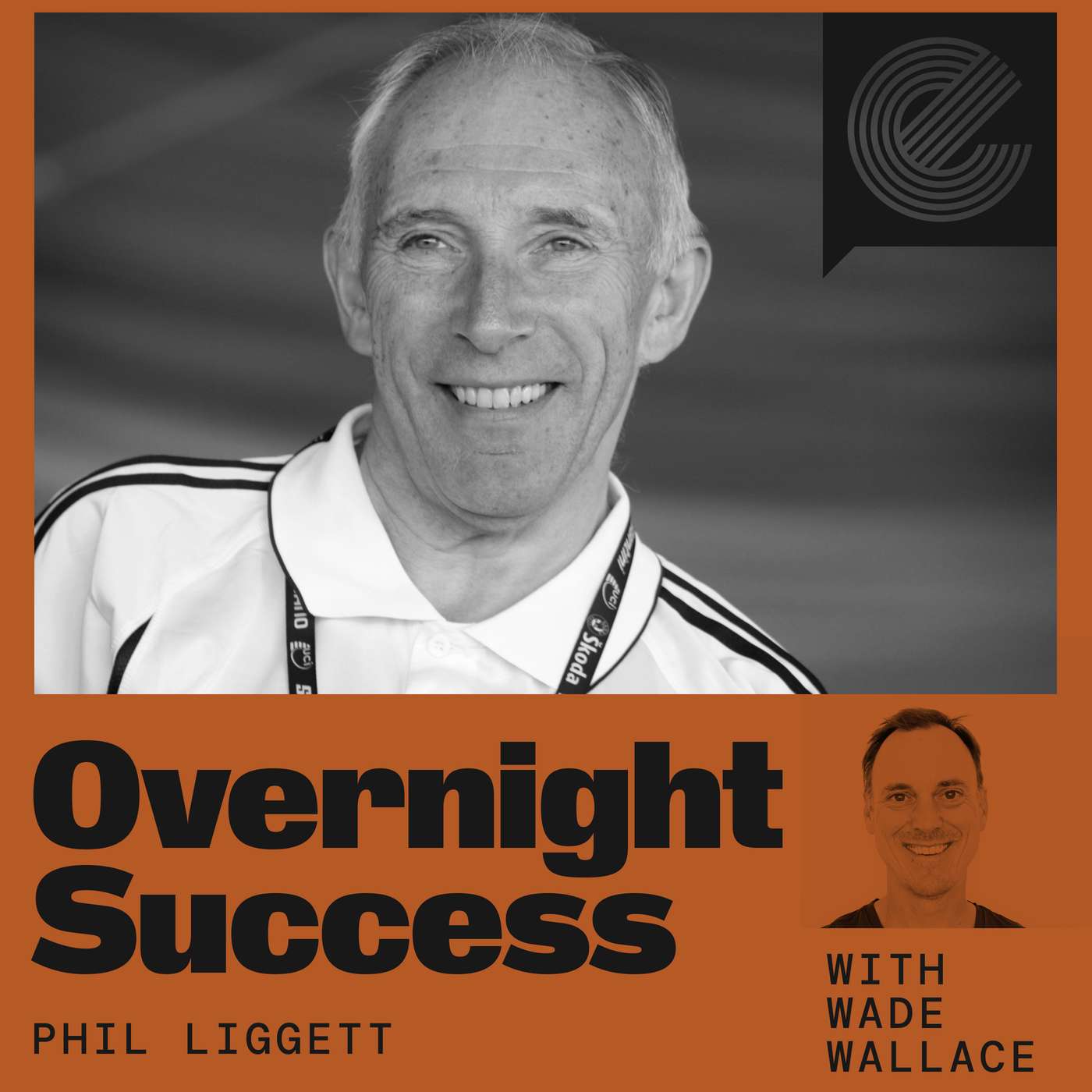
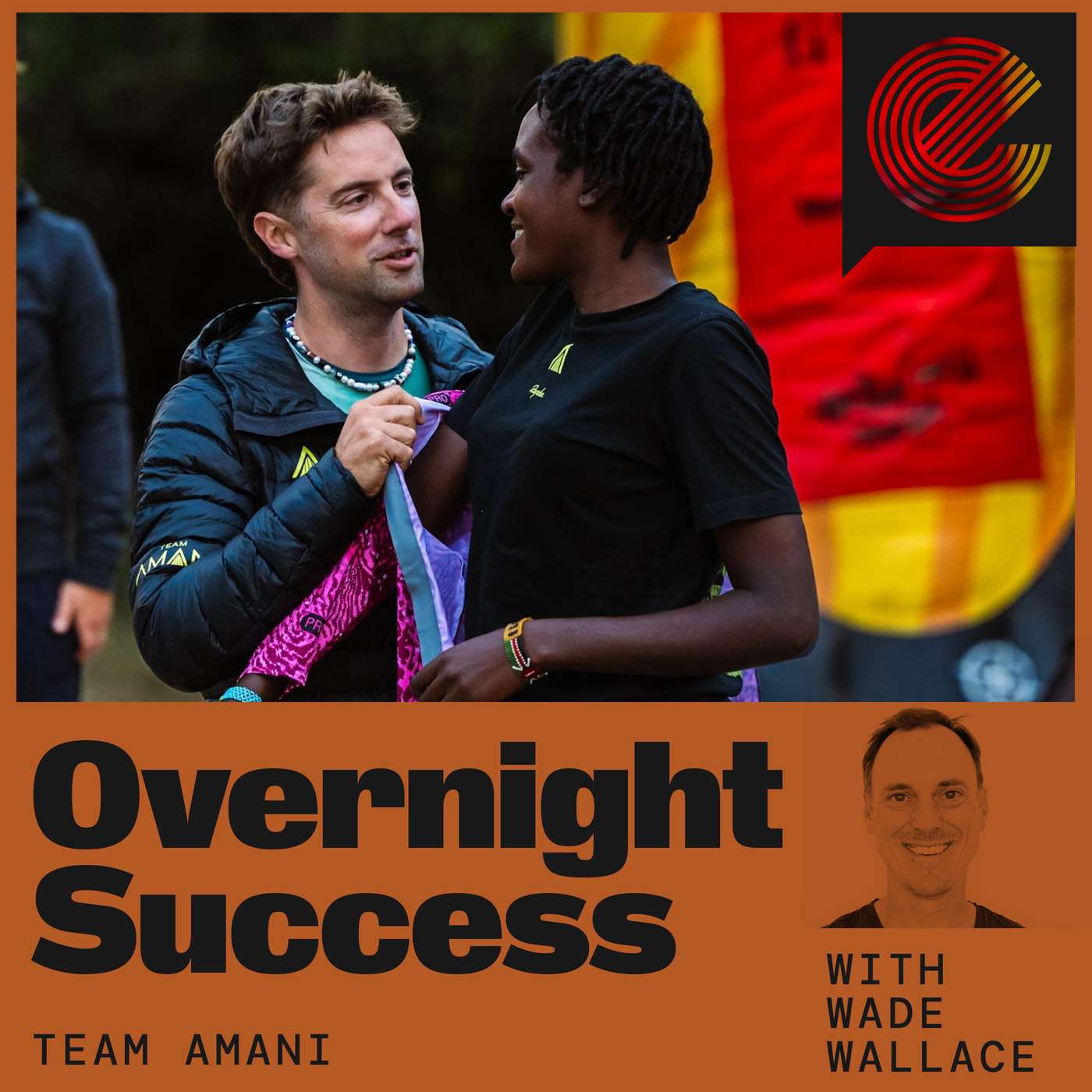

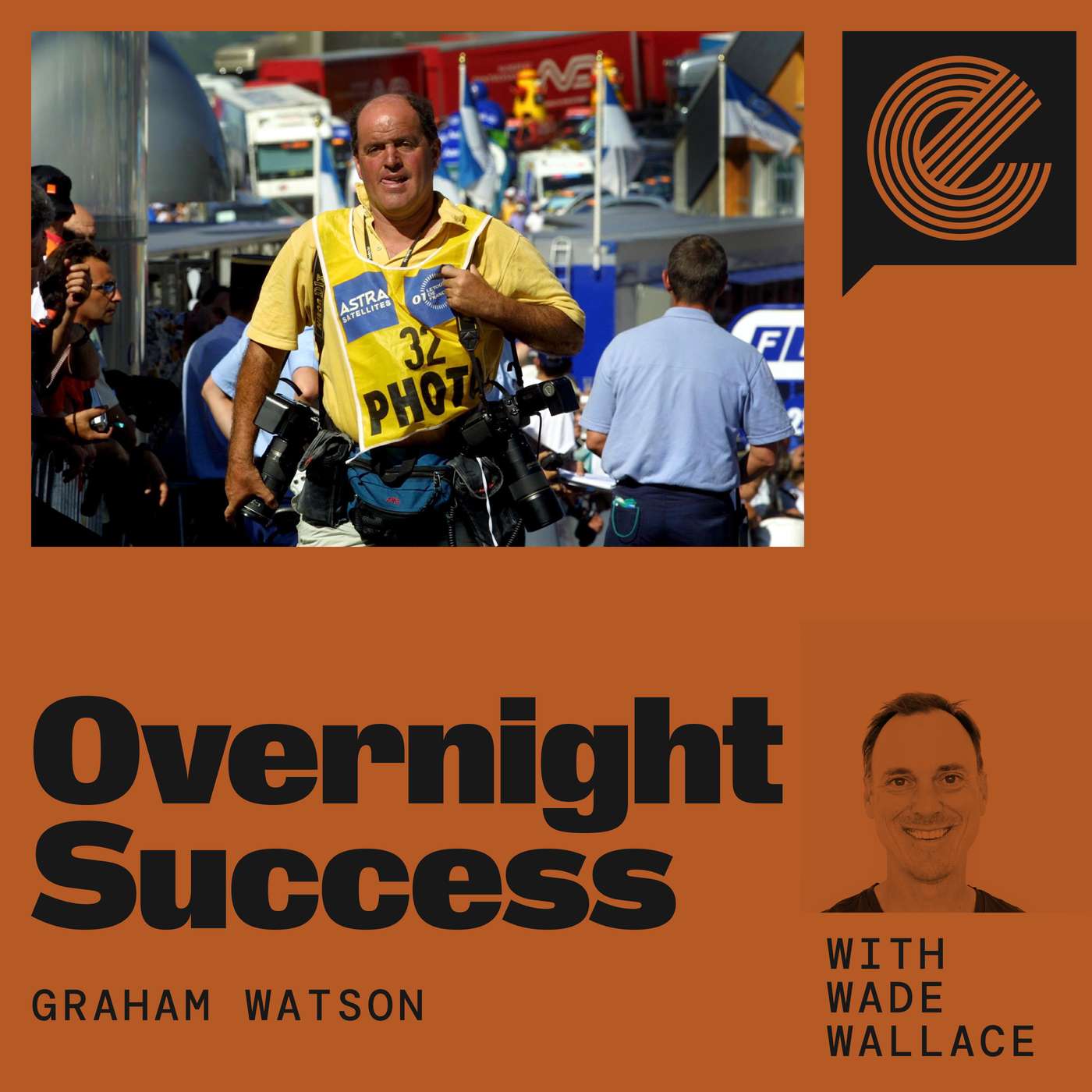

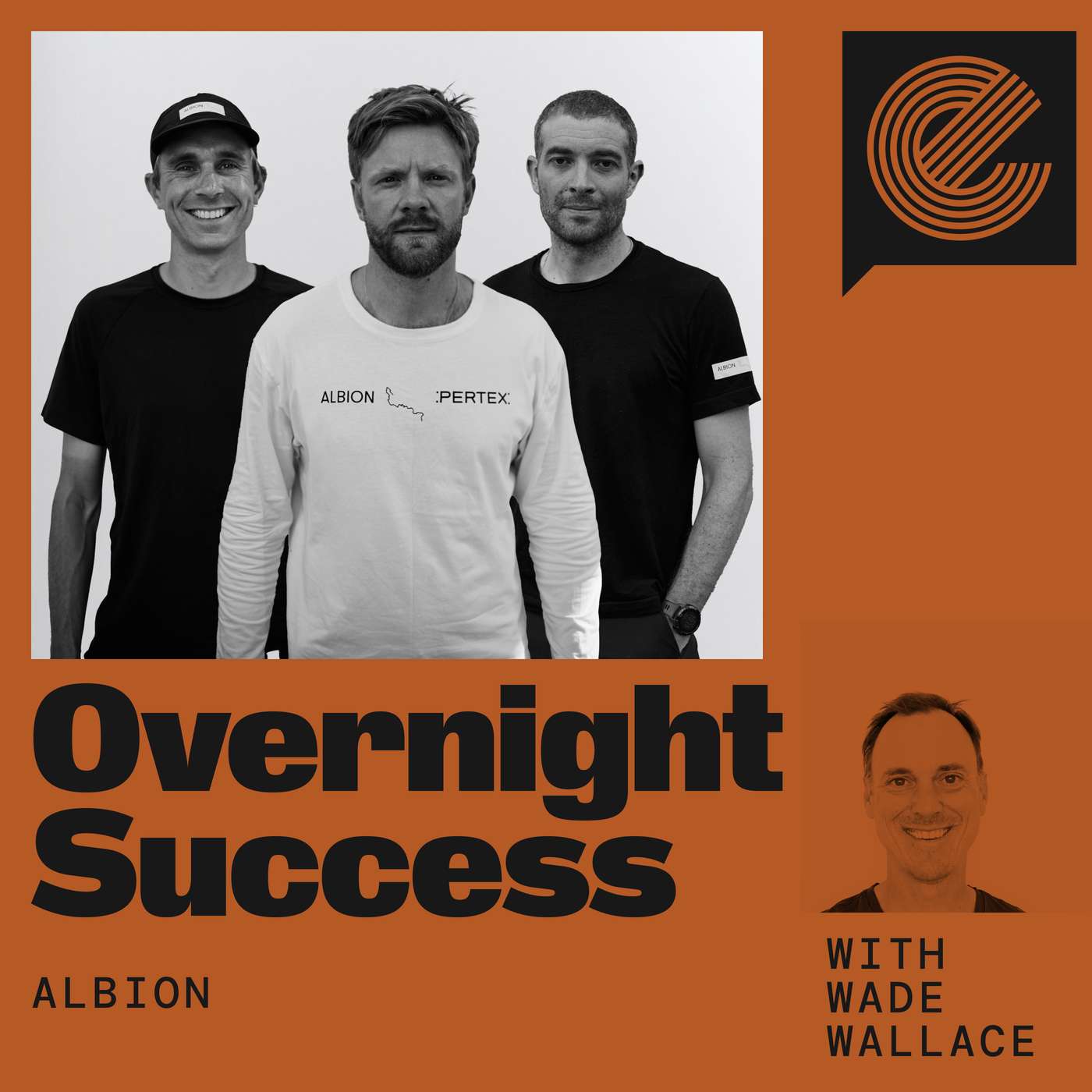
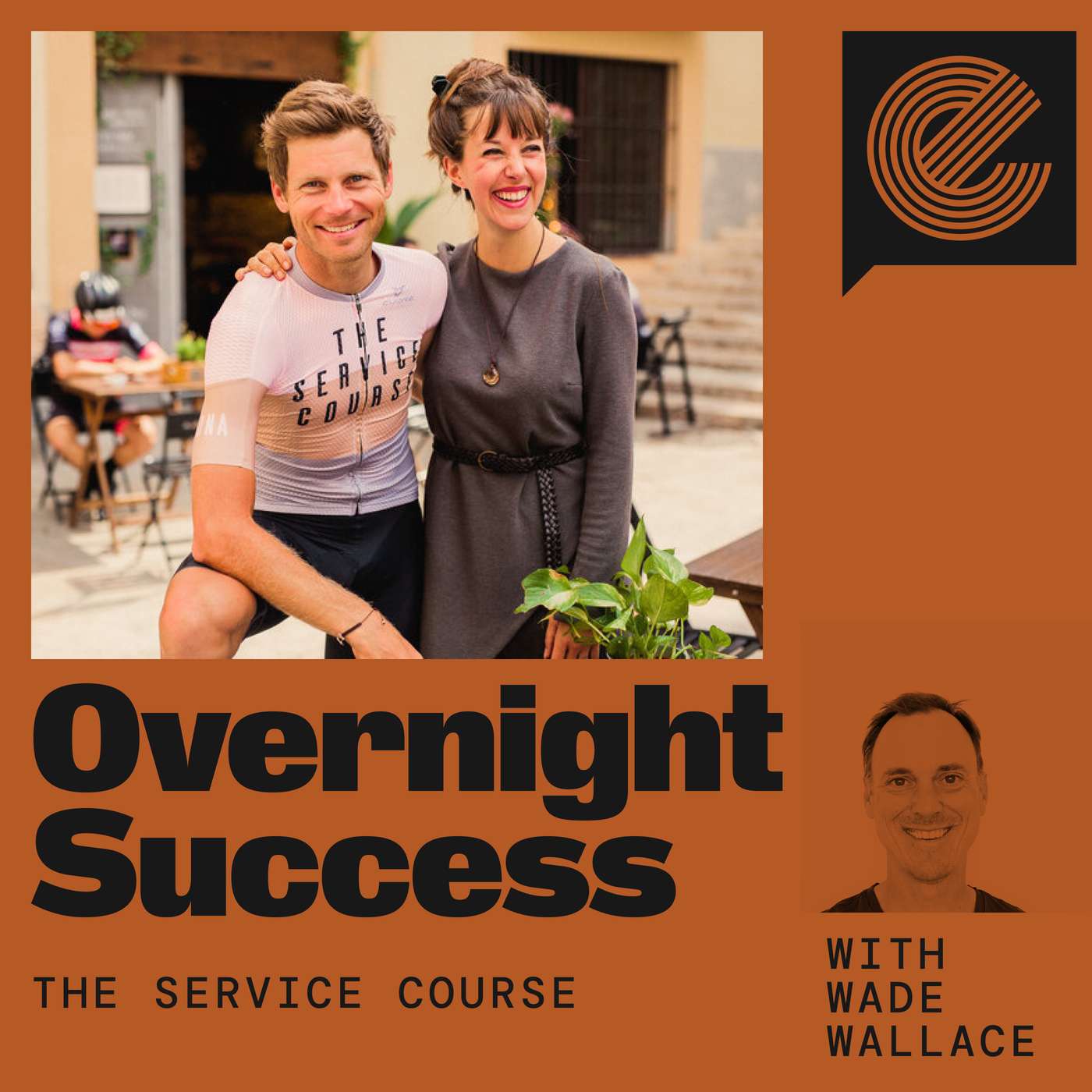
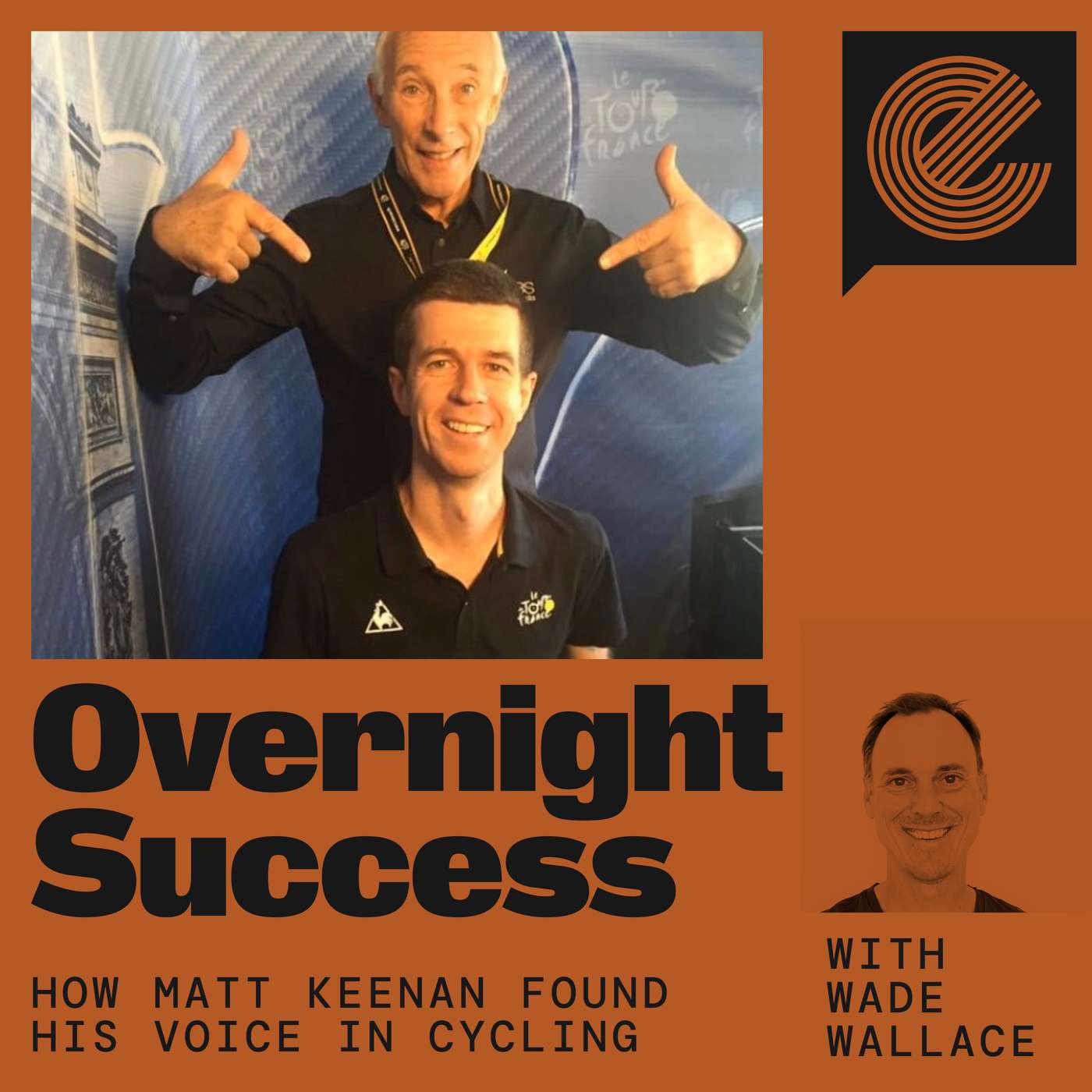
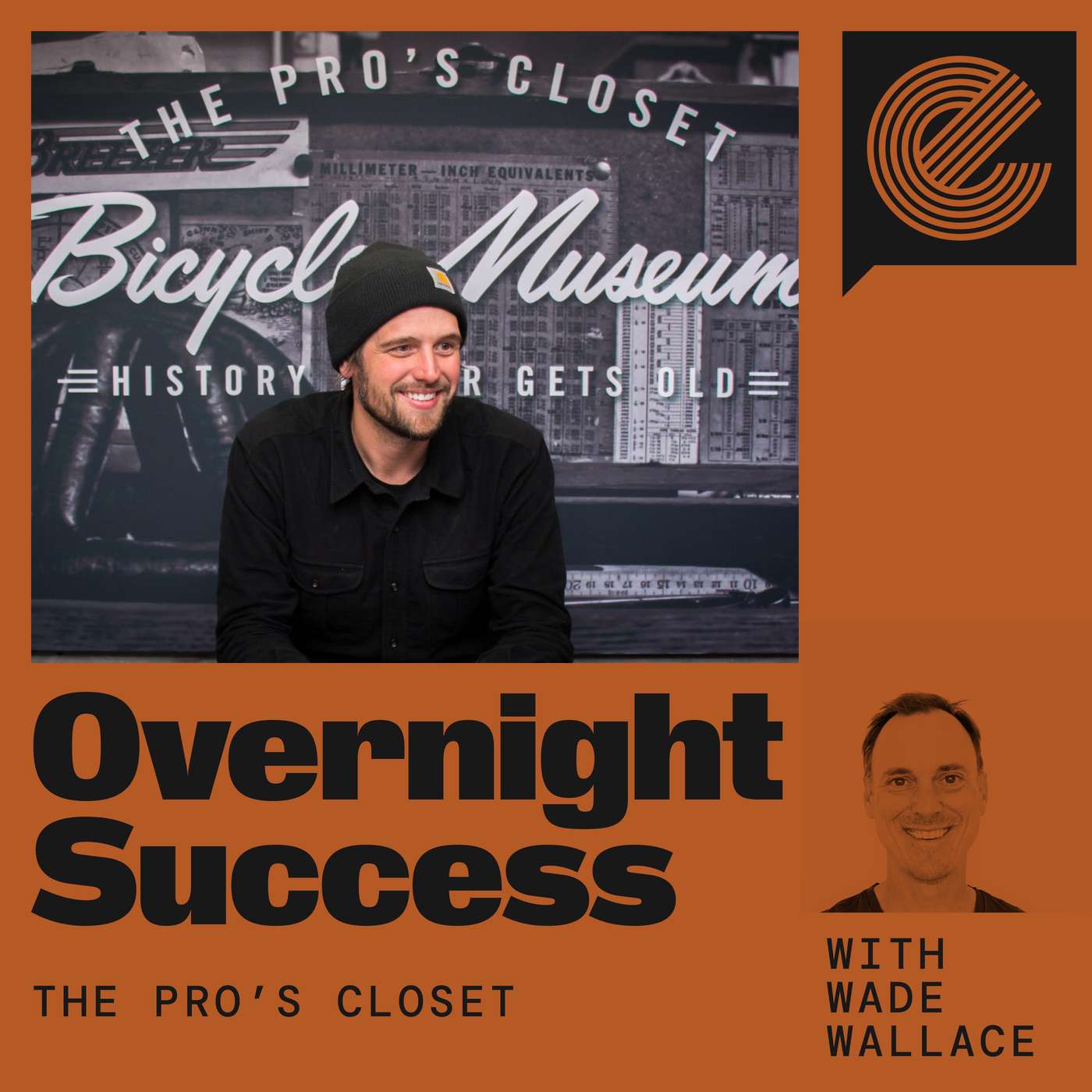
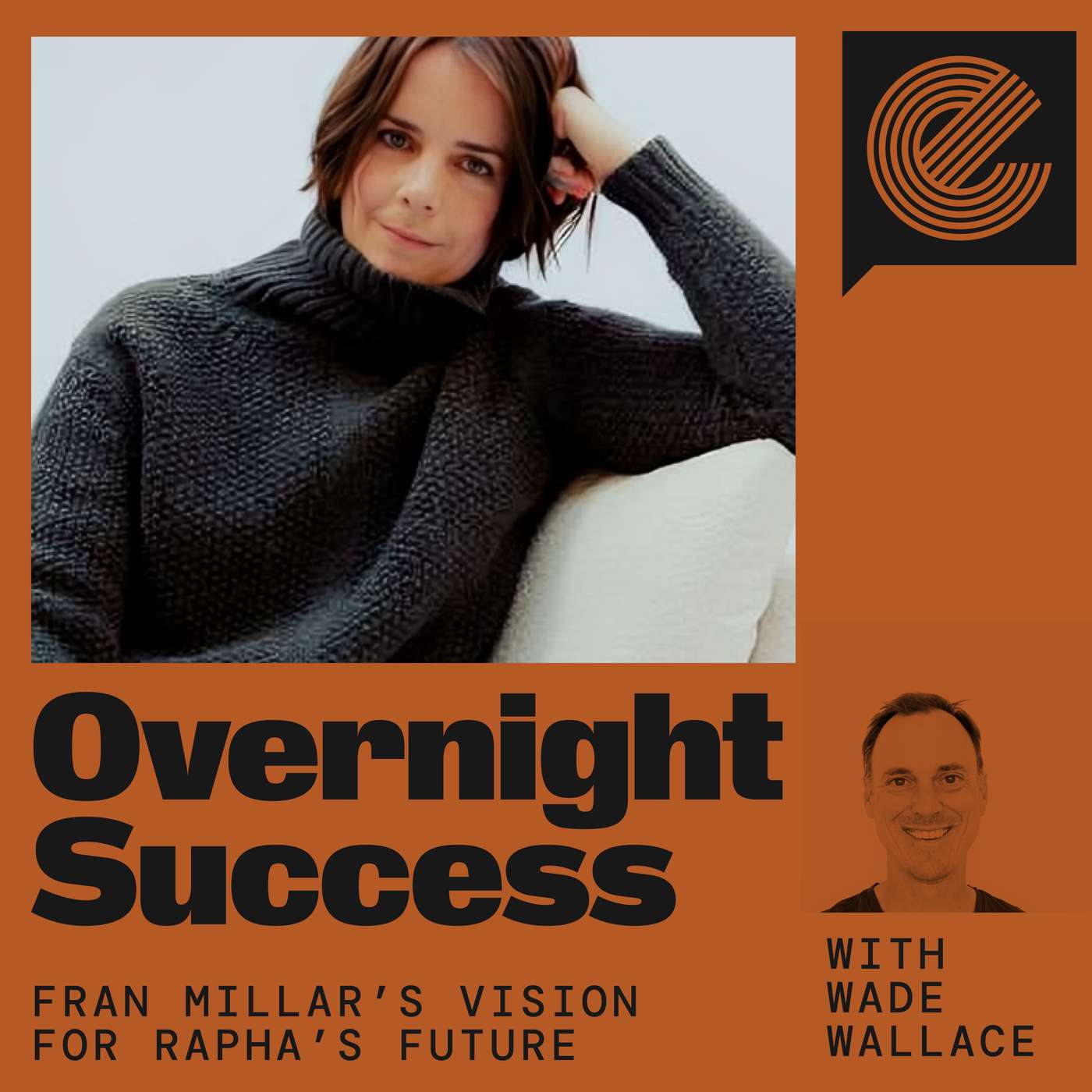
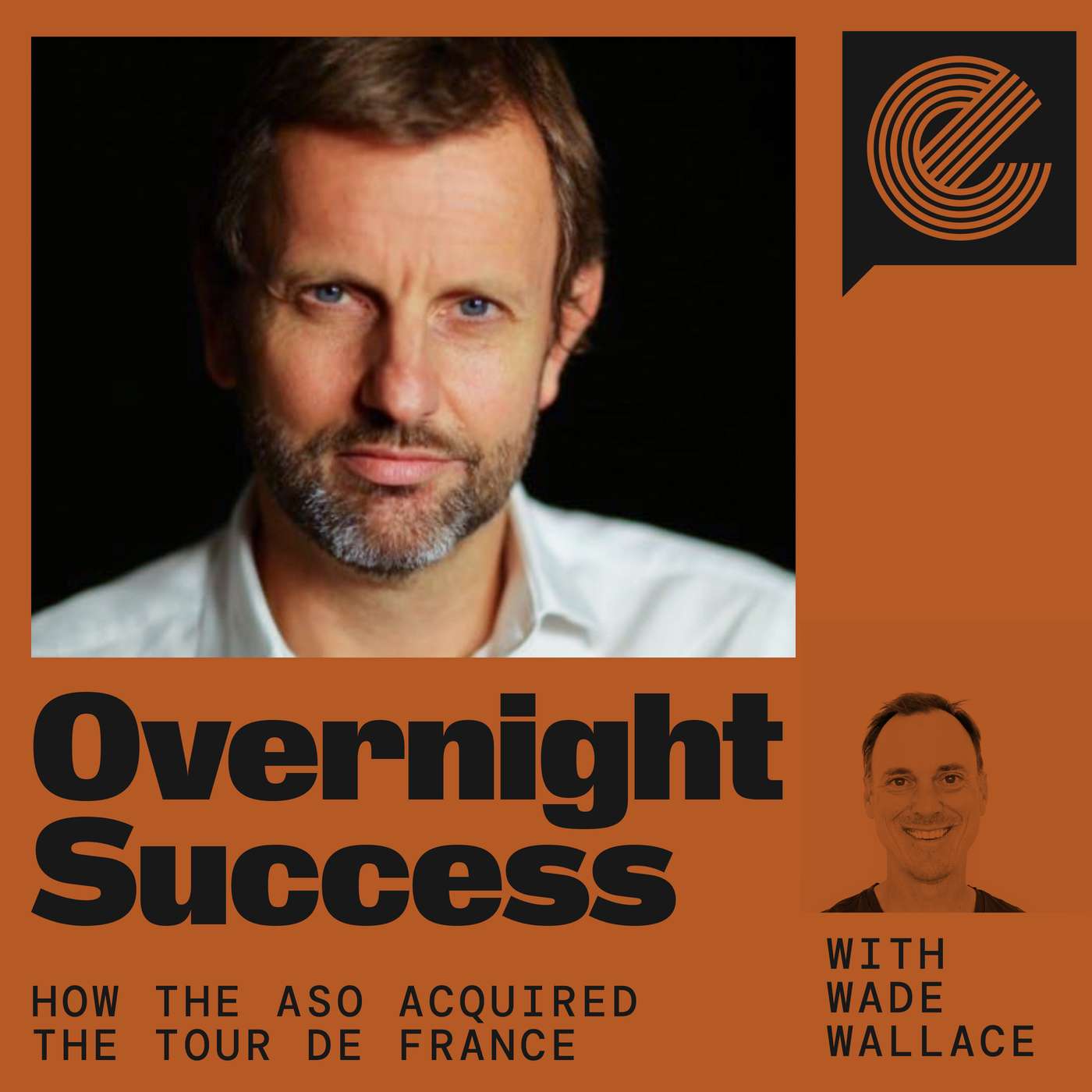

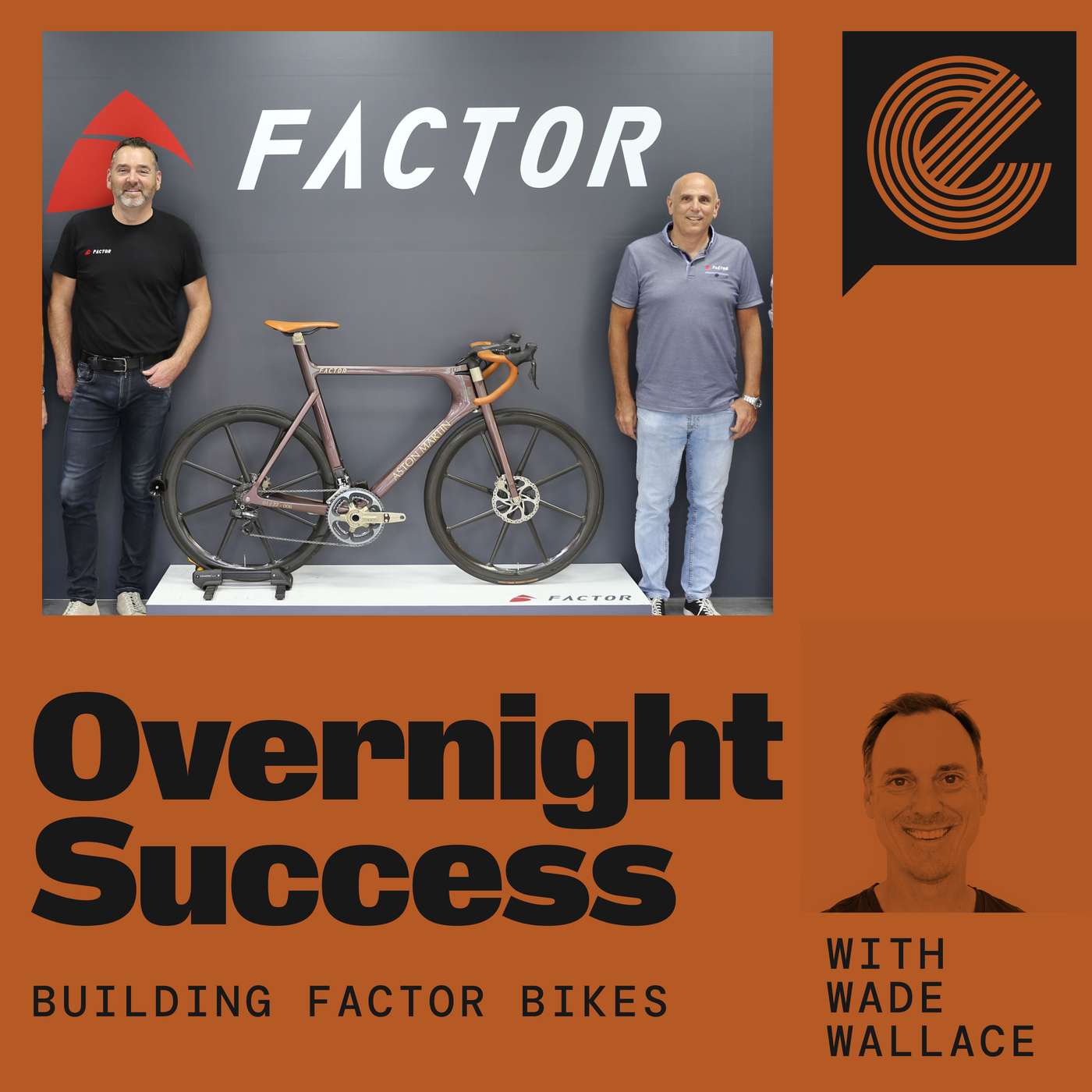
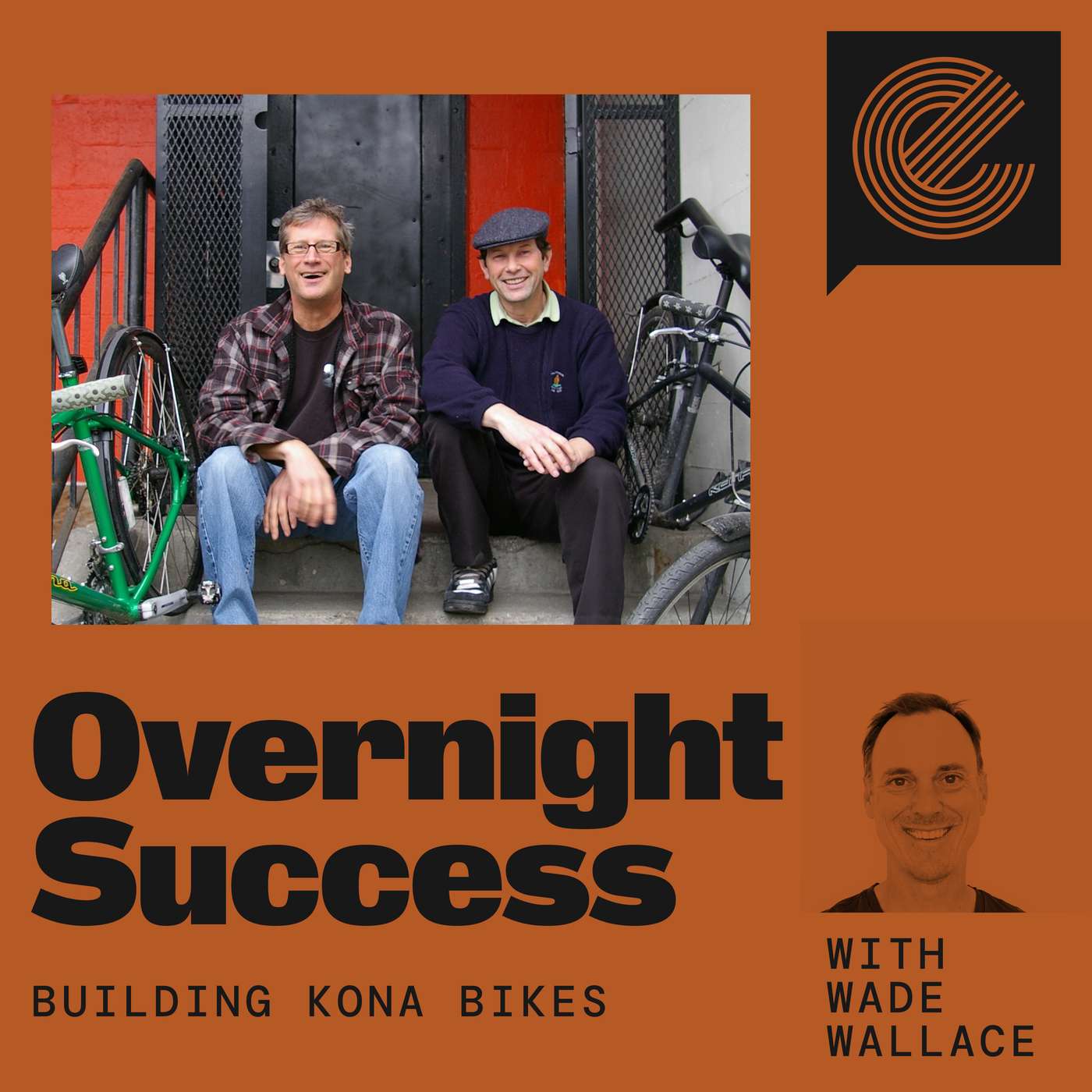




when is the next episode coming? love this show